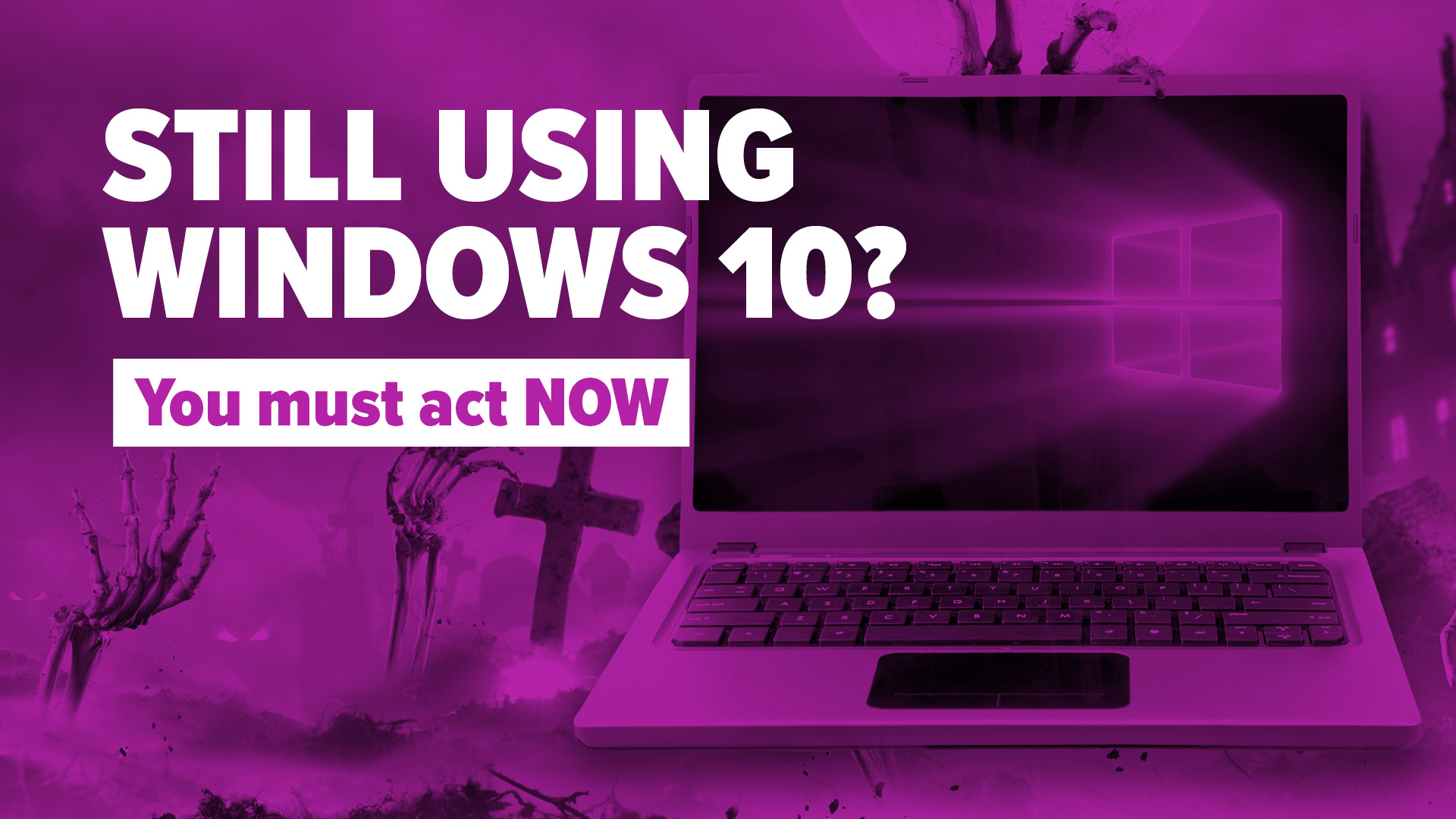
What would happen to your business if one of your most important tools suddenly became unsafe to use?
That’s the reality many businesses are about to face with Windows10.
On October 14, 2025, Microsoft will end free support for Windows10. After this date, the operating system reaches “end of life,” meaning there will be no more security updates, bug fixes, or official assistance from Microsoft.
While you can still run Windows10 after that date, you’ll be doing so without critical protections — a serious CyberSecurity risk for any business.
What End of Support Really Means
When support ends, so does Microsoft’s responsibility to keep your system secure. Specifically, you’ll lose:
• Security updates to protect against new threats.
• Bug fixes that address performance or stability issues.
• Technical support if problems arise.
Running an unsupported system means every new vulnerability becomes a permanent security gap. Cybercriminals often target these systems because they know they won’t be patched.
The Security Risks of Staying on Windows10
Outdated systems quickly become easy targets for cyberattacks. Without regular security patches, businesses are more vulnerable to:
• Data breaches – Sensitive information could be stolen and misused.
• Ransomware – Criminals could lock your files and demand payment.
• Downtime – Unsupported software may stop working with modern applications.
For companies that rely on uptime and secure data, these risks are too great to ignore. The message is simple: Upgrade Now.
How Many Businesses Are Unprepared?
Despite Microsoft’s repeated announcements, many organisations have not acted. Recent research found:
• 18% of business owners were unaware Windows10 support was ending.
• 14% knew but had not started planning their upgrade.
With an upgrade process that can take months to budget, schedule, and complete, time is running short.
Extended Security Updates (ESUs) – A Short-Term Fix
Microsoft will offer Extended Security Updates for businesses that cannot move away from Windows10 immediately. But this is only a temporary measure:
• ESUs are paid and increase in price each year.
• They cover security fixes only, not new features or performance improvements.
• They delay, rather than solve, the upgrade problem.
Businesses that rely on ESUs will still need a long-term plan.
Benefits of Moving to Windows 11
Upgrading to Windows 11 is more than just meeting a deadline — it’s an opportunity to improve performance and security. Benefits include:
• Advanced CyberSecurity features like hardware-based isolation and stronger protection against phishing.
• Optimised for modern work, including hybrid and remote teams.
• Better performance, with faster boot times and improved energy efficiency.
• Integration with Microsoft Teams, OneDrive, and Copilot for seamless collaboration.
Hardware Requirements to Consider
Not all computers running Windows10 can move to Windows 11. The newer OS requires:
• A Trusted Platform Module (TPM) 2.0 for secure processing.
• Compatible processors from recent generations.
• Adequate RAM and storage space.
If your current devices don’t meet these requirements, you may need to invest in new hardware. Planning early helps avoid costly last-minute purchases.
The Cost of Waiting
Delaying your upgrade can lead to higher costs and more disruption:
• Paying for ESUs while still planning your upgrade.
• Limited hardware availability if demand spikes close to the deadline.
• Rushed implementation, increasing the risk of errors and downtime.
Starting now gives you the flexibility to spread costs, schedule upgrades during low-activity periods, and prepare your staff.
Preparing for the Transition
1. Audit your systems – Identify all devices still running Windows10.
2. Check compatibility – Use Microsoft’s tools to see if devices can run Windows 11.
3. Plan your budget – Factor in software, hardware, and labour costs.
4. Schedule upgrades – Choose times that reduce business disruption.
5. Back up data – Always protect your files before making major changes.
6. Train your staff – Ensure they know how to use new features effectively.
October 14, 2025 — A Hard Deadline
Microsoft will not extend free support for Windows10. After this date, every unpatched vulnerability becomes a permanent risk. Acting now means you can transition smoothly, improve your security posture, and avoid the cost and stress of last-minute changes.
About Robertson Technology Group
Robertson Technology Group, based in Victoria, BC, provides managed technology security and support solutions for small to medium-sized businesses across Canada. We take on the burden of managing technology so you can focus on running your business, delivering professional support without the need for on-site IT staff.
Our personalized approach means we adapt our services to fit your needs, using the best tools available to ensure secure, reliable systems. From planning and executing system upgrades to strengthening CyberSecurity defences, we are committed to keeping your business safe, efficient, and ready for the future. Whether you need to Upgrade Now or develop a long-term technology strategy, our team is here to help